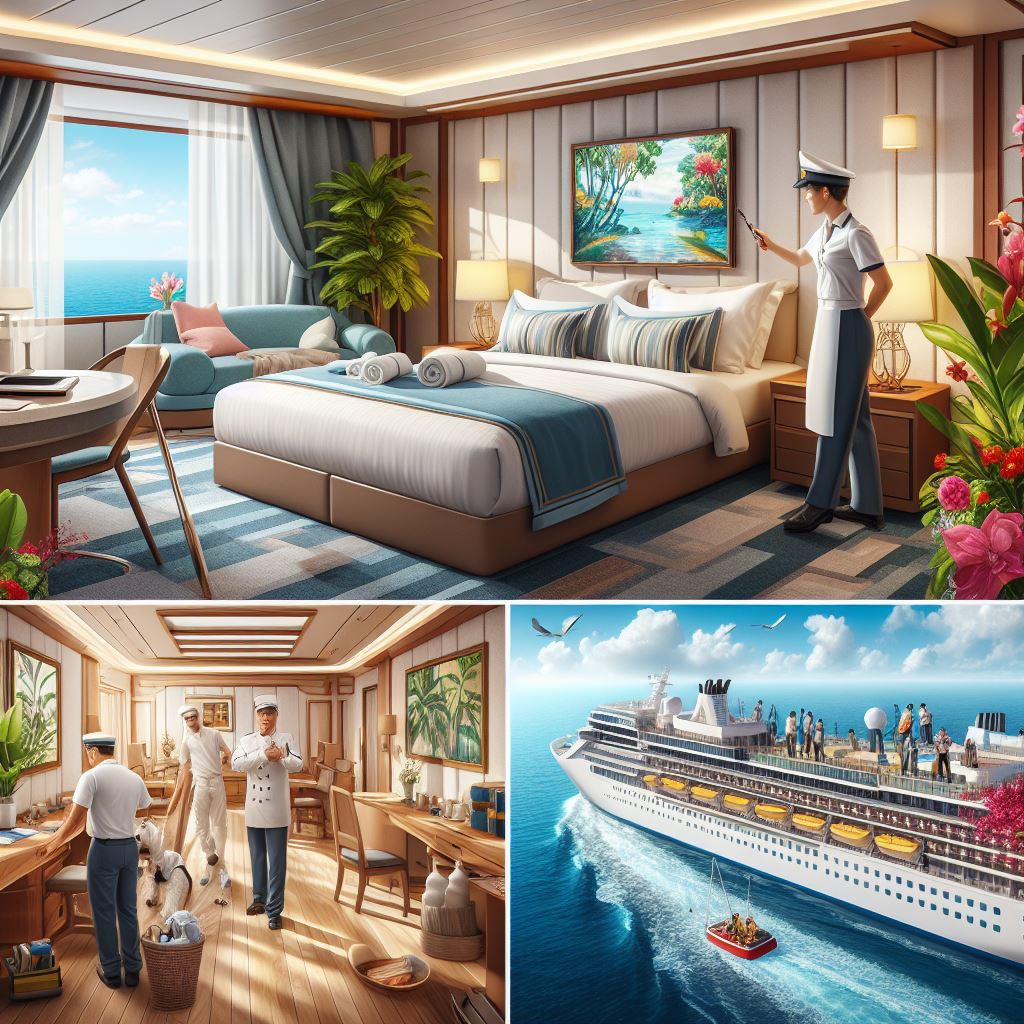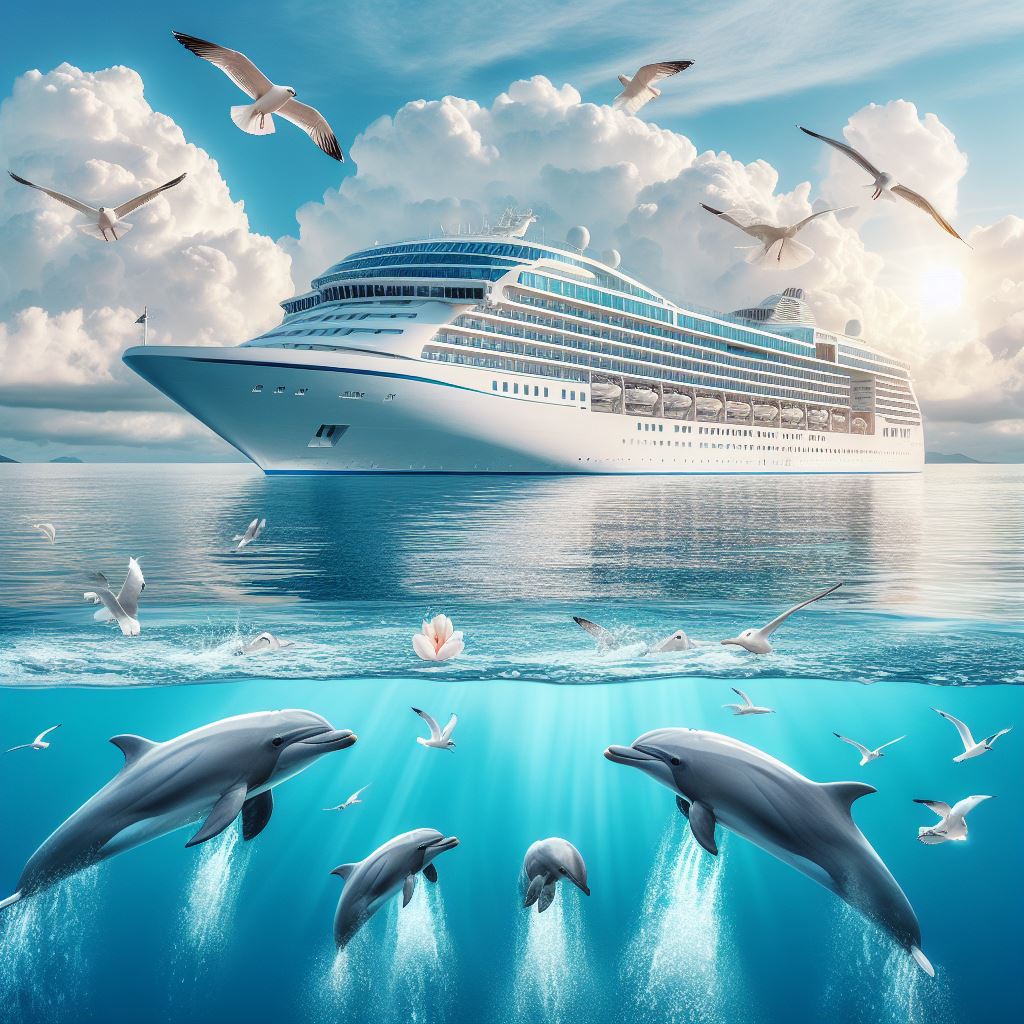
Introduction to cruise ship Industry
The cruise ship industry is a fascinating and dynamic sector that offers a unique and unforgettable work experience. Whether you're considering a career change or are just curious about what it's like to work on a floating city, this blog post will provide you with a comprehensive overview of life and work on a cruise ship.
Overview of the Cruise Ship Industry
The cruise ship industry has grown rapidly in recent years, with more and more people choosing to vacation on these floating resorts. cruise ships come in various sizes, from intimate vessels to massive mega-ships that can accommodate thousands of passengers. These floating cities offer a wide range of amenities, including restaurants, theatres, pools, and even shopping malls.
Growing Demand for Cruise Ship Employment
With the ever-increasing demand for cruise vacations, the need for a skilled and dedicated workforce has also grown. The cruise ship industry offers employment opportunities across various departments, including nautical staff, hospitality and service, engineering and technical staff, entertainment and recreation staff, and medical and safety staff.
Benefits and Challenges of Working on a Cruise Ship
Working on a cruise ship comes with unique benefits and challenges. On the bright side, you get to travel to incredible destinations and experience different cultures while earning a living. You'll also have access to a wide range of amenities, including delicious food and entertainment options. However, it's important to note that working on a cruise ship requires long hours and dedication, often with limited time off. The close quarters and constant interaction with passengers can also be challenging.
Cruise Ship Job Roles and Responsibilities
Working on a cruise ship offers a diverse range of job opportunities. Let's explore the different roles and responsibilities within the major departments on a cruise ship.
Captain and Nautical Staff
The captain holds the highest position on a cruise ship and is responsible for the safe navigation and operation of the vessel. Their duties include overseeing the crew, managing the ship's itinerary, and ensuring compliance with international maritime regulations. The nautical staff, including officers and crew, assist the captain in navigation, safety procedures, and maintenance tasks.
Hospitality and Service
The hospitality department plays a significant role in ensuring passengers have a memorable onboard experience. This includes working in various positions such as food and beverage, housekeeping, and guest services. Front of house operations and customer service staff are responsible for managing passenger inquiries, resolving issues, and ensuring guest satisfaction. Service excellence is of paramount importance in providing a top-notch experience for cruise ship guests.
Engineering and Technical Staff
The engineering department is responsible for the maintenance and operation of the ship's machinery and systems. This includes tasks such as engine maintenance, electrical repairs, and plumbing. Technical crew members play a crucial role in ensuring the smooth operation of onboard facilities and equipment. Compliance with safety and regulatory standards is a top priority for the engineering and technical staff.
Entertainment and Recreation Staff
The entertainment team on a cruise ship is responsible for organizing a wide range of onboard activities and shows. This includes coordinating live performances, managing the ship's entertainment venues, and engaging with passengers during various recreational activities. Their goal is to create memorable guest experiences and ensure everyone onboard has a fantastic time.
Medical and Safety Staff
The medical staff onboard a cruise ship ensures the wellness and safety of both passengers and crew. They provide medical care, emergency response, and follow safety protocols in the event of accidents or illnesses. The training and qualifications required for medical staff are essential in maintaining the health and safety of everyone onboard.
Training and Education for Cruise Ship Employment
Securing a job on a cruise ship often requires appropriate qualifications and certifications. Let's explore the necessary training and education.
Required Qualifications and Certifications
Basic educational requirements vary depending on the job role, but a high school diploma or equivalent is generally expected. Specialized certifications and training programs are essential for positions in the nautical, engineering, hospitality, and entertainment departments. Proficiency in languages and effective communication skills are highly valued in the cruise ship industry.
Onboard Training Programs
Once hired, cruise ship employees go through comprehensive onboard training programs. These programs include orientation and familiarization, where new employees learn about ship operations and safety procedures. On-the-job training and shadowing allow employees to develop their skills in real-life scenarios. Continuous personal and professional development is emphasized to ensure employees grow and excel in their roles.
Offshore Training Institutes and Courses
Reputable training institutes offer courses specifically designed for careers in the cruise ship industry. This institutes provide specialized training for various job roles and departments. Completing offshore training not only enhances your knowledge and skills but also increases your chances of securing a placement on a cruise ship.
Securing a Cruise Ship Placement
Finding a job on a cruise ship requires research, preparation, and a strategic approach. Let's explore some tips for securing a cruise ship placement and cruise careers.
Researching Job Opportunities
Online job portals and cruise line websites are valuable resources for finding job opportunities. Networking with industry professionals can also provide insider information about available positions. Identifying the right cruise line and position that aligns with your skills and interests is crucial for a successful career at sea.
Application Process and Interview Tips
Crafting an impressive resume and cover letter specific to the cruise ship industry is essential. Preparing for cruise ship job interviews involves understanding the industry, practicing common interview questions, and demonstrating enthusiasm for the job. Nailing the interview can significantly increase your chances of landing your dream cruise ship position.
What to Expect onboard a Cruise Ship
Living conditions on a cruise ship can vary depending on the position and ship size. Crew members typically live in shared cabins and have access to crew-only areas and amenities. Work-life balance can be challenging due to long working hours, but many cruise lines offer different contracts, allowing for time off between contracts. Despite the challenges, the rewards of working on a cruise ship, such as travel opportunities and a unique work environment, can make it a fulfilling career.
Summary of Cruise Ship Training and Placement Process
In summary, working on a cruise ship offers a unique and rewarding career experience. The industry provides diverse job opportunities across various departments, including nautical, hospitality, engineering, entertainment, and medical staff. Training and education play a vital role in securing a placement, with specialized certifications and onboard training programs offering essential knowledge and skills.
Frequently Asked Questions
How can I enhance my chances of getting hired on a cruise ship?
Enhancing your chances of getting hired on a cruise ship involves having the required qualifications, certifications, and relevant experience. Networking, researching job opportunities, and showcasing your passion for the industry through a well-crafted resume and cover letter are also essential.
Are there age restrictions for cruise ship employment?
Age restrictions for cruise ship employment vary depending on the cruise line and position. While some positions may have specific age requirements, many roles on cruise ships welcome candidates of various ages.
What are the salary and benefits offered in the cruise ship industry?
Salary and benefits in the cruise ship industry vary depending on the position, cruise line, and your experience level. Generally, cruise ship employees receive a competitive salary, free accommodation, meals, access to onboard facilities, and the opportunity to travel to different destinations.
How does one deal with homesickness while working on a cruise ship?
Homesickness is a common challenge for those working on cruise ships. Staying connected with loved ones through technology, forming friendships with colleagues, exploring onboard activities during downtime, and keeping a positive mindset can help alleviate homesickness.
Can I switch job roles or departments once onboard a cruise ship?
Switching job roles or departments once onboard a cruise ship is possible, although it may depend on availability and the cruise line's policies. Demonstrating flexibility, a willingness to learn, and expressing interest in different positions can increase your chances of transitioning to a new role or department.
























































